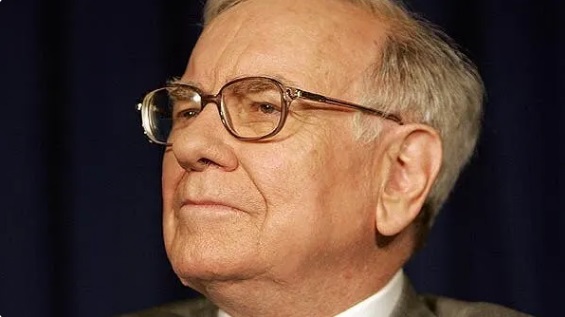
Warren Buffett says 'insurance Is the most important business' and the 'engine' driving Berkshire's success since 1967
Warren Buffett has long credited insurance as the lifeblood of Berkshire Hathaway's empire, describing it as "the engine that has propelled our expansion since 1967," according to a 2016 CNBC article. And it's easy to see why.
With its unique financial structure and ability to generate a steady stream of investable capital, insurance has proved to be a critical driver of Berkshire's growth. But as natural disasters continue to increase in frequency and severity, the pressure on the industry – and its future profitability – has never been greater.
Buffett has never hidden his enthusiasm for the insurance business, often praising its up-front cash flow. "It's so much fun because you get the money at the start, you know and then you find out whether you've done something stupid later on," he said at the 2024 Berkshire Hathaway shareholders meeting. This quip perfectly captures the balancing act insurers face: collect premiums today and hope claims don't eat you alive tomorrow.
During that same shareholders meeting, he also stated, "Insurance is the most important business at Berkshire." But what makes the insurance model so appealing to Buffett isn't its immediate profitability – it's the float.
Float refers to the premiums insurers collect before they need to pay out claims. This pool of money is a financial gift that keeps on giving. Rather than sitting idle, it can be invested, generating returns for the insurer.
For Berkshire Hathaway, this float has been nothing short of transformative. Back in 1970, Berkshire's insurance float stood at a modest $39 million. By 2016, it had ballooned to $91.6 billion, providing Buffett with the fuel to fund acquisitions and investments that have turned Berkshire into its current conglomerate.
As Buffett put it in his 1997 shareholders letter, the formula is simple: "An insurance business has value if its cost of float over time is less than the cost the company would otherwise incur to obtain funds." In other words, so long as Berkshire's underwriting discipline keeps claim payouts manageable, the company can continue using its insurance float as a low-cost source of capital. And Berkshire has excelled here, maintaining an underwriting profit for 13 consecutive years – a rarity in an industry where operating at a loss is often the norm.
According to Reinsurance News, Berkshire insurance businesses generated a positive return of $5.4 billion for 2023.
Natural disasters have always been a risk, but they have become more frequent and severe over recent decades, driven by climate change and increased exposure in high-risk areas. The number of global natural disasters surged from 39 in 1960 to 396 in 2019, with extreme weather events like floods, hurricanes and wildfires becoming more common, according to Vision of Humanity.
Wildfires in California, hurricanes in Florida and the Carolinas and other climate-related catastrophes put insurers in a tough spot. These disasters lead to massive claims, forcing companies to reevaluate risk models and hike premiums. While this may shore up the bottom line in the short term, it also raises critical questions about the long-term sustainability of insuring high-risk areas.
Buffett has acknowledged the competitive nature of insurance and its lack of traditional moats like patents or trademarks. "Insurance companies offer standardized policies which can be copied by anyone. Their only products are promises," he said. And yet, Berkshire's insurance subsidiaries – GEICO, General Re and others – have thrived by coupling disciplined underwriting with smart investments. Even in a crowded field, Berkshire's track record stands out.
Still, the stakes are higher than ever. As extreme weather events continue to strain insurers, companies must navigate a delicate balance: charging enough to cover rising risks without pricing themselves out of the market. For investors, Buffett's success in the sector offers lessons in patience, discipline and understanding the power of float. For insurers, it's a reminder that even the most profitable engines need careful tuning when the road ahead gets rough.
